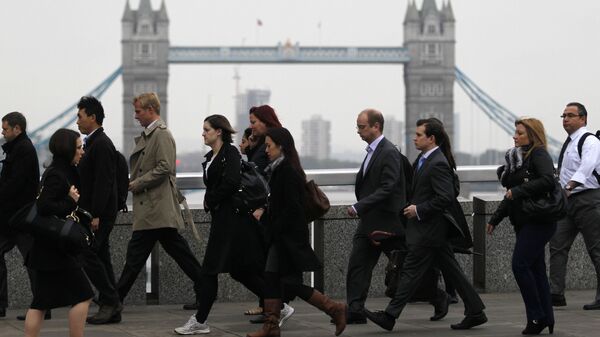The mood in the London's business center, the City, has enhanced since Theresa May's ministerial reshuffle, which allowed a number of prominent MPs who voted to remain in the European Union return to government.
Damian Green, David Lidington, David Gauke and Garvin Barwell, were all offered senior government positions and all voted to stay within the EU.
Huge thanks to the people of Ashford for re-electing me again. It is a great privilege to represent you.
— Damian Green (@DamianGreen) June 9, 2017
Delighted and honoured to have been appointed Secretary of State for Work & Pensions.
— David Gauke (@DavidGauke) June 11, 2017
The City is extremely happy at the prospect that a "softer" Brexit is on the horizon for Britain.
"The chance of the City's asks being listened to during the Brexit negotiations increase now," a senior City source said June 12.
"It is in the interests of the City and the UK economy for us to be able to trade freely with the EU and continue to access and attract the global talent and expertise that makes London the world's financial heart," Inga Beale from Lloyds of London said in a recent interview.
Theresa May was adamant, before the general election, to would push through with a "hard" Brexit, which would mean that freedom of movement for EU citizens would be restricted. It would also mean that Britain would have to leave the single market, which would result in them having to establish new trade agreements with countries in and outside of the EU.
However, a "softer" Brexit would allow for freedom of movement and also mean that Britain could remain part of the European Union.
Sputnik spoke to Kate Hills, founder of Make it British, an organization that is the source of information on British-made brands and UK manufacturing.
Ms. Hills said that when she first found out about Brexit and that Britain had voted to leave the EU in the June 2016 referendum, there was some concern and worry.
"I was very worried for a lot of the manufactures that I know and represent. I knew that a lot of the factory owners were anti-Brexit as a lot of them are importing their raw materials from Europe," Ms. Hills told Sputnik.
"A 'softer' Brexit can only be a good thing. A lot of manufacturing jobs require skilled labor and sometimes that is only available outside the UK. An example of this is seen in the textiles industry — a lot of the workers come from Eastern Europe. If we had no freedom of movement it would make it very difficult for them to come to the UK and work," Ms. Hills added.
Some Remainers are against even discussing soft Brexit but in all strategies you need an ideal outcome & then levels of least-bad outcome.
— Ian Dunt (@IanDunt) June 13, 2017
However, Ms. Hills doesn't think that a "hard" Brexit is all bad.
"Leaving the single market could be a good thing as the exchange rate has been working in our favor, we have seen a lot more interest. Both from a consumer and business perspective, it is cheaper. It's a good thing, as it's also making machinery a lot less expensive, particularly in the textile industry," Ms. Hills told Sputnik.



